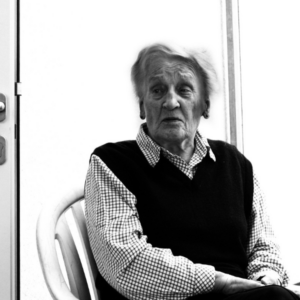Aging And Anxious: The Plight Of LGBTQ Older Adults

Aging And Anxious: The Plight Of LGBTQ Older Adults
October 26, 2022
He’s known for his guest columns in the Washington Post and his recent humorous book, “Stupid Things I Won’t Do When I Get Old: A Highly Judgmental, Unapologetically Honest Accounting of All the Things Our Elders Are Doing Wrong.” But there’s nothing funny about his most recent column, entitled “The anxieties of growing old when you’re LGBTQ.” A divorced, 65-year-old gay man, Petrow worries about what will happen as he ages and grows more infirm, perhaps even needing the same late-in-life help that he provided to his own parents. He quotes some compelling data: gay older adults are 2 times more likely to be single and live alone; they are 4 times less likely to have adult children than other older adults; they are more likely to be impoverished- even homeless- and more likely to be isolated and lonely. None of those are realities you want to have as you head toward your later years, when community and support become critical to allowing you to live out your life as you wish with dignity. In particular, not having sufficient social connections (who will bring me chicken soup when I need it, for example?) is one of the major anxieties for older LGBTQ adults, who may have been outsiders for much of their lives, and unable to live truthfully among the family and community around them.
A recent survey conducted by AARP goes further to document real concerns of LGBTQ older adults. This survey and report, called Dignity 2022, confirmed that this population of seniors has worries similar to the broader senior population: worries about not having enough money in retirement, not having family support as they get older, and perhaps facing discrimination. But many of their concerns are rooted in the discrimination and exclusion they may have faced earlier in their lives. Nearly 50% of respondents were extremely concerned or very concerned about not having social or family support in their later years, and 52% reported that they were socially isolated. 22% admitted they see a mental health professional due to anxiety or depression. Not only do these concerns raise mental health alerts but they can also lead to real physical consequences if these older adults are lonely and socially isolated. To find out more about AARP’s efforts on behalf of LGBTQ seniors, click here. And read here to see AARP’s list of welcoming long-term care housing options for gay older adults.
So finding an open and welcoming community becomes critical for older gay and lesbian adults, be it while aging in place or in an actual retirement or long-term care facility. Previously in agebuzz, we’ve touched on the topic of supportive and inclusive long-term care housing options for older LGBTQ adults. It’s a difficult topic, especially if there are partners involved who wish to live together. As one man exclaimed, “Have I come this far only to go back in the closet and pretend we are brothers?” Fortunately, there are many national groups that now try to support LGBTQ seniors in their search for welcoming communities. SAGE, a national advocacy organization with local affiliates, is working nationwide to help build supportive and welcoming housing and senior programs for all in need and is attempting to build trained, long-term care communities around the country to support the needs of older LGBTQ adults. For an example of the kinds of communities and residences they are building in New York, click here.
The need for inclusive, supportive long-term care communities for older gay adults is only growing. As SAGE has estimated, by 2030, there will be around 7 million LGBTQ people age 50 and older in the United States, up from the 3 million estimated in 2021. As we’ve noted over and over again in agebuzz, loneliness and social isolation pose major health risks for older adults generally. Add to that discrimination and the current political climate and it’s no wonder that so many older LGBTQ adults feel anxious about their futures. No matter where you come from or what your background is, surely we can all relate to the desire to live in a supportive and welcoming environment as we enter our later years.







